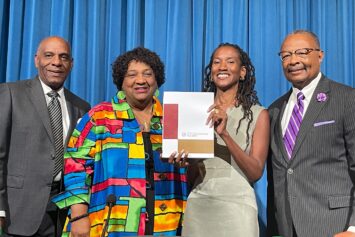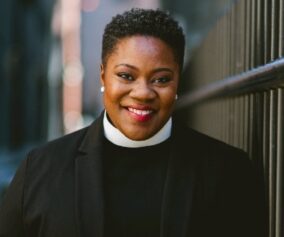In March 2021, Evanston, Illinois, became the first city in the U.S. to make reparations available to its Black residents as repair for past discrimination and the legacy of chattel slavery.
Evanston, a suburb of Chicago, voted to distribute $400,000 to eligible Black households with each receiving $25,000 for home repairs, mortgage assistance or down payments on property.

The reparations payouts are being funded through donations and revenue from a 3 percent tax on the sale of recreational marijuana. Evanston has pledged to distribute $10 million over 10 years, BET reported.
The payments have started to be distributed and the city has issued $25,000 payments to the first 16 residents, CBS News reports.
So far, Evanston’s reparations committee has approved 122 applicants who qualified as “ancestors” for the Local Reparations Restorative Housing Program. The first 16 of the 122 were selected through a lottery drawing. To be an eligible ancestor, residents must be a Black person who resided in Evanston between 1919 and 1969, BET reported.
Evanston has been praised for its move toward reparations, while the issue has stalled on a federal level.
The HR40 reparations study bill, first introduced some 30 years ago by late Congressman John Conyers, was finally sent to the House in January 2021, for approval, but it has been stuck ever since. Many reparations advocates have called for President Biden to issue reparations through an executive order.
Prominent reparations scholar William Sandy Darity, a Duke University economist, has said federal reparations, which he estimates to be $14 trillion with each eligible Black household receiving $840,000, could only happen on a federal level, and that it is the only way to close the widening racial wealth gap.
“The United States federal government is the only one that can afford this type of bill,” he told Finurah.
As with the Evanston reparations program, Darity, who co-authored the book “From Here to Equality: Reparations for Black Americans in the Twenty-First Century” with folklorist A. Kirsten Mullen, too calls for lineage-based reparations, meaning recipients must prove they are ancestors of slaves.
Today, it is easier to trace slave ancestry. It can be done through DNA testing as well as documents such as wills and post-Civil War federal records.
“Black Americans are concentrated at the bottom of the income and wealth distributions in the U.S. and so, as a group, have not shared equally in these gains in the economy in the past 30 or 40 years,” economist Ellora Derenoncourt told CBS News.
While Evanston has made reparations moves on a municipal level, in 2020, California became the first state in the nation to form a reparations task force, which recently released its first report. California is also looking to issue reparations on a lineage-only basis.




